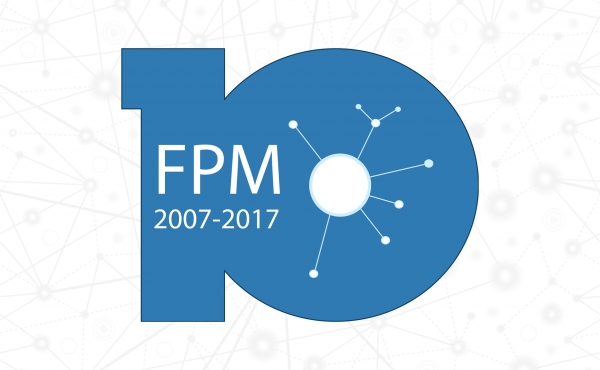FPM10 Patient Story 4
During our 10th anniversary in 2017 we collected some patient stories that demonstrate both the experience of living with chronic pain and the many benefits of chronic pain services
Patient Story 4
"My problem with pain started with a pain in my neck, which wouldn’t go away. I eventually had a scan and they found that I had a displaced disc. The specialist told me I could have an operation to put a cage around the disc, but this was very scary as there was a very slight chance of paralysis. I felt very upset about the diagnosis.
Things did not change much, until something occurred to bring back some bad memories from the past.
The pain came on with a vengeance and I just lay in bed, crying and not knowing what to do. It was very hard and depressing, as nobody else can see pain.
I was given paracetamol and codeine by my GP, but it wasn’t touching the pain. I’d heard of the Pain Management Programme and decided to give it a try. I asked my GP to refer me. It took 6 months to get referred, but once this occurred, I never looked back.
I learned all sorts of things and attended many different classes. I went to a relaxation class and attended some physiotherapy sessions. During this class, I learnt about the 3 S’s – Strength, Suppleness and Stamina. I also had three sessions with the Team Psychologist, as, by that time, I was convinced there was an emotional aspect to my pain. During these sessions, I was taught about ‘magical thinking’ and how beliefs about my past had held me back in my life. So looking back now perhaps the ‘flooding’ of pain was an important lesson to learn.
One of the things I learnt early on was the difference between acute pain and chronic pain. I had the latter. In a strange way, once I knew I was not going to get ‘better ‘, this released me to take on board the lessons from the Pain Management Programme.
One of the things I learnt early on was the difference between acute pain and chronic pain. I had the latter. In a strange way, once I knew I was not going to get ‘better ‘, this released me to take on board the lessons from the Pain Management Programme.
Another lesson learnt is about ‘positive thinking’, the thought that people with chronic pain can help themselves get better. This gradually lightened my mood and I was able to control my pain better.
Eventually, I went to the final Pain Management Programme, which was a small group dealing with things in detail. Gradually and gradually, I started to feel better and to do more. I learnt that, by not doing too much each day, I was able to take on a voluntary position helping at a local charity. In helping others, I am also able to help myself.
Another lesson learnt is about ‘positive thinking’, the thought that people with chronic pain can help themselves get better. This gradually lightened my mood and I was able to control my pain better.
Before the pain, I used to go to Pilates. I hadn’t done this for ages, but the Pain Management Programme even helped me to start going to Pilates again. The physiotherapist recommended an NHS referral to a Pilates class that I went to. This helped to rebuild my confidence. I then started to attend a Pilates class, which I still do every Saturday. I have progressed from Level 1 to Level 3, which isn’t bad!
Recently, I went through a period of time when the pain came back as I had got myself into a stressful situation. I was able to refer myself to the physiotherapist at the pain clinic, who retaught me the need to pace, to exercise regularly and not to be too hard on myself. This condition is not my fault!
I think of the Pain Management Programme as being a family, which you can be supported by even if you don’t see people very often. I go to the annual follow-up sessions and occasionally phone about something. It’s good to know that they are there.
One final thing, I’ve been able to sit for over an hour writing this, which I couldn’t do in those bad years. So thank you Pain Management Programme and I’d recommend you to those in pain out there."
I think of the Pain Management Programme as being a family, which you can be supported by even if you don’t see people very often. I go to the annual follow-up sessions and occasionally phone about something. It’s good to know that they are there.

